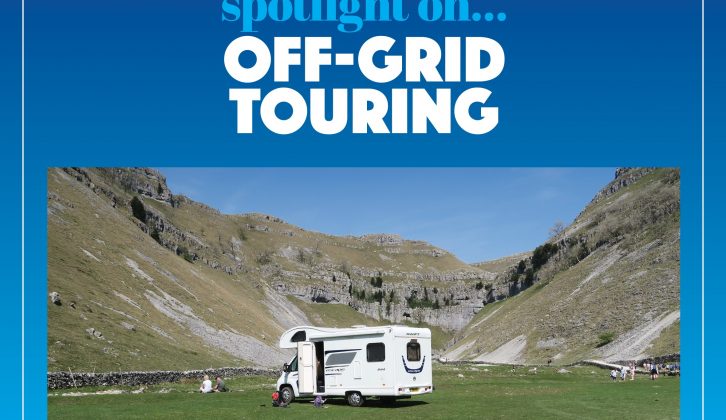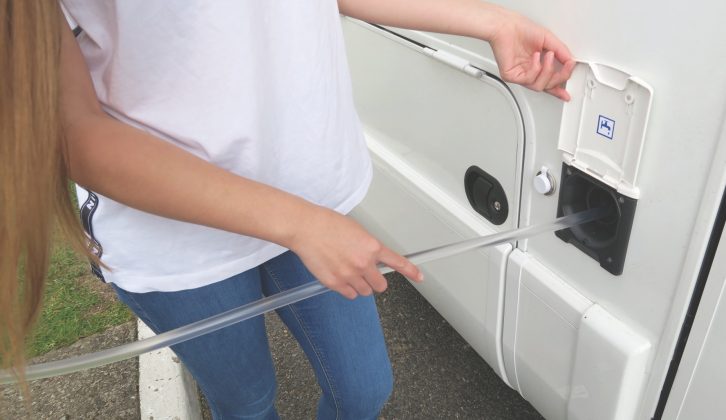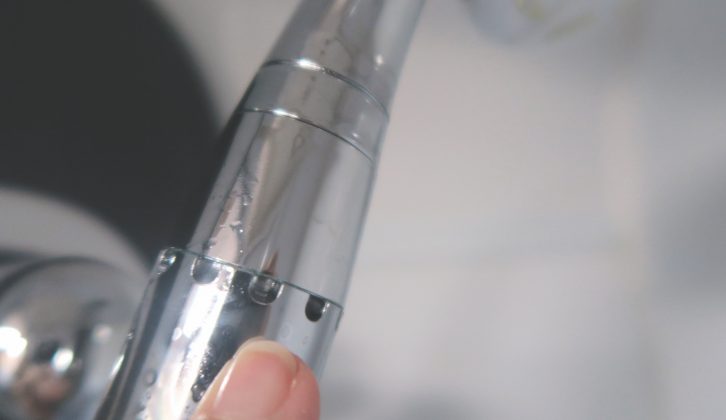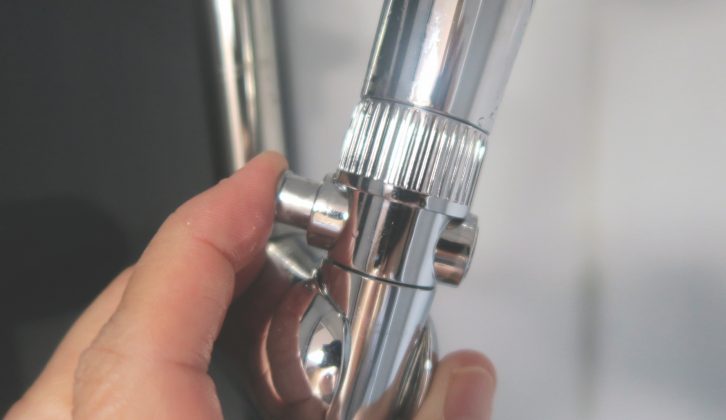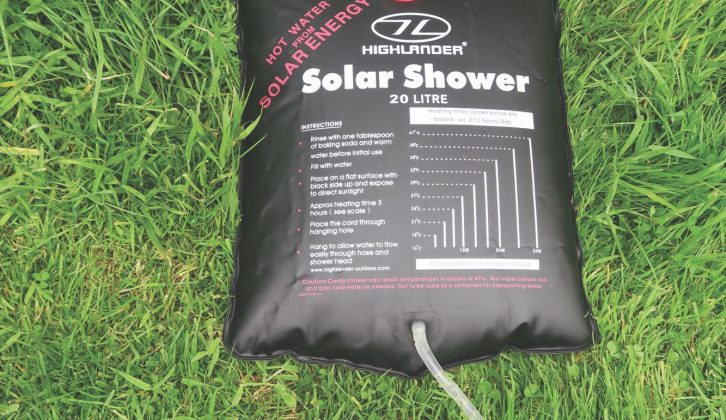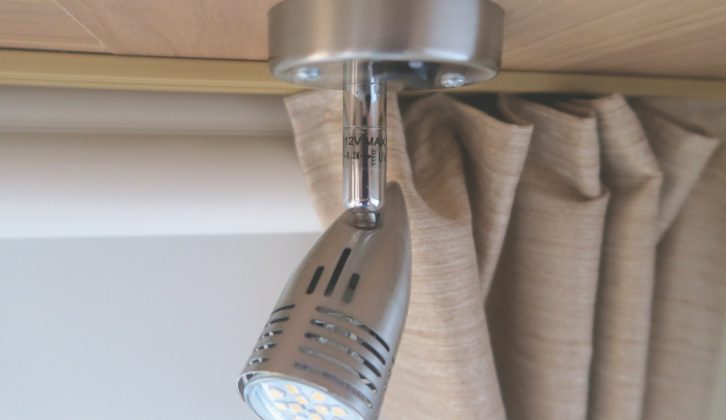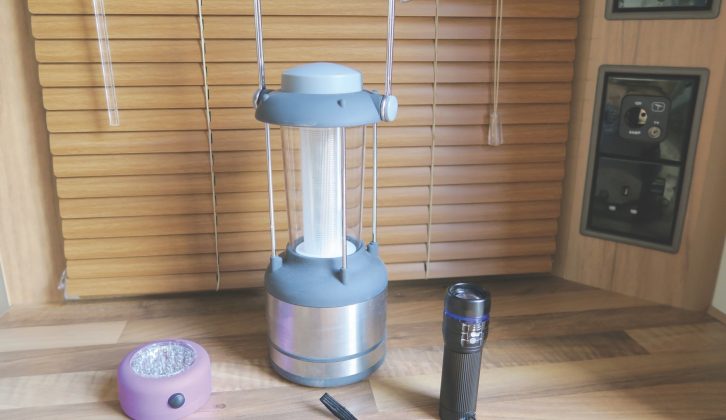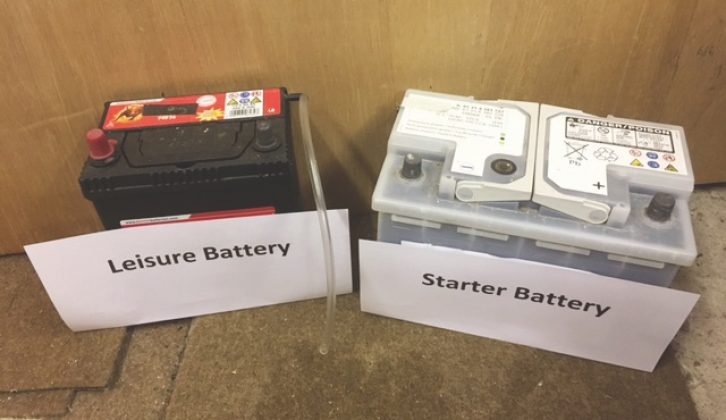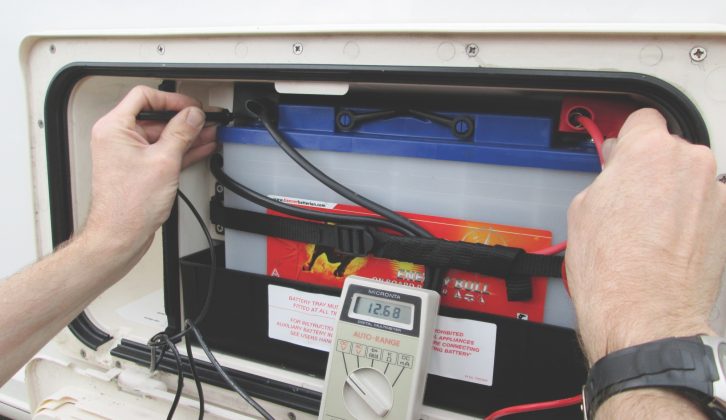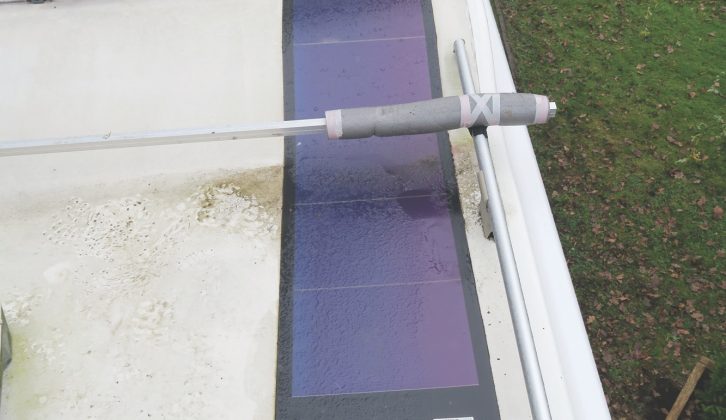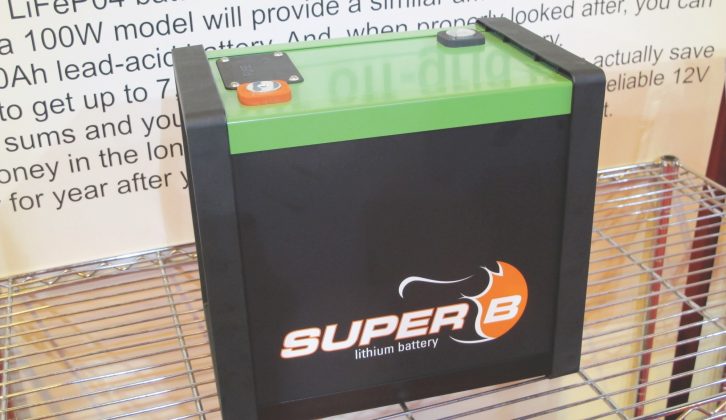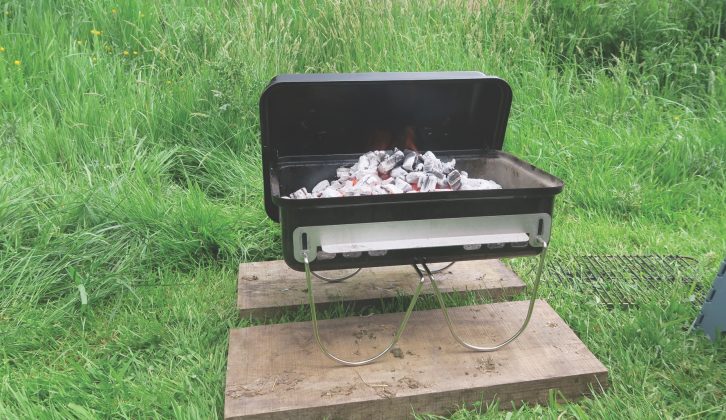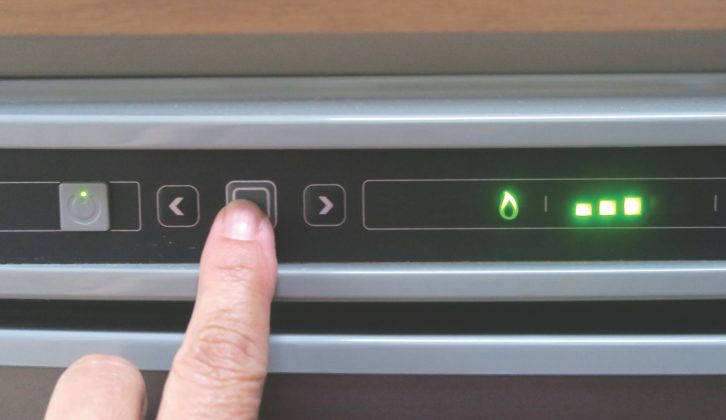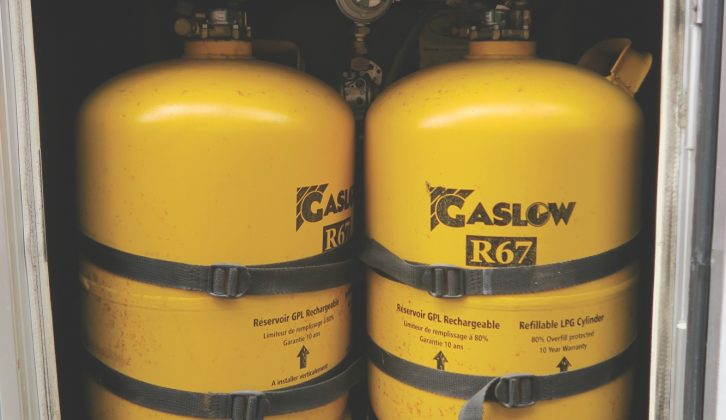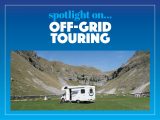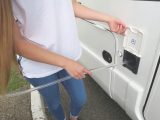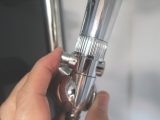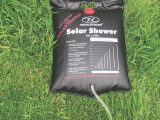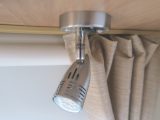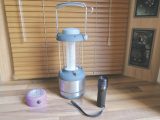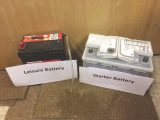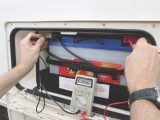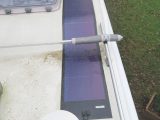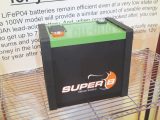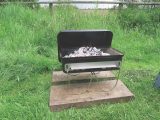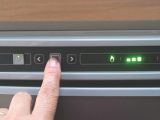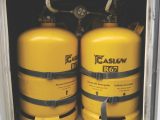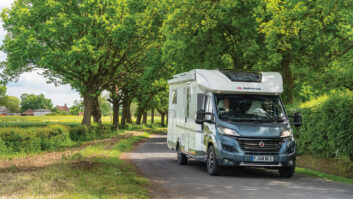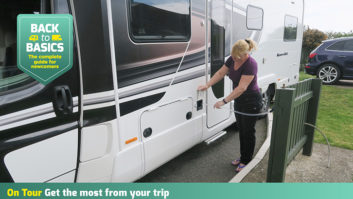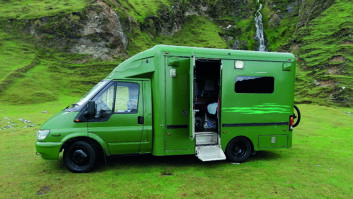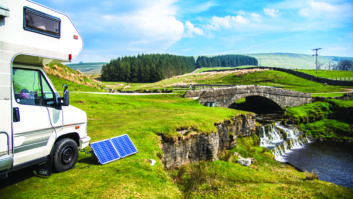Motorhomes and campervans are set up for touring off-grid, although some people prefer the security of electric hook-up.
One of the main benefits of off-grid camping is the price. Sites without hook-up and washrooms can cost as little as £6 per night, as opposed to an average £15 per night with hook-up.
Pitching at these campsites can be more relaxed, too, allowing you to position your motorhome anywhere on site and in any direction. It is far more pleasing to have a view of the open countryside, rather than looking into someone else’s leisure vehicle.
As an aside, off-grid camping is not the same as wild camping, because off-grid means you are overnighting on a legitimate site. Wild camping is strictly for tents and doesn’t include motorhomes or caravans.
Although camping informally (that is, for free) is allowed in some places such as Scotland, it is frowned upon by the locals and landowners.
As a rule of thumb, most unfenced land and beaches are private property and you would require the landowner’s permission to stop overnight.
For the purpose of this article, I will be looking at off-grid camping on site, not informal camping. Our family loves to tour this way, but it does require a bit of careful planning beforehand. Here’s what you need to know to enjoy the experience to the full.
Washrooms
Generally, people prefer to book sites with washroom facilities, but there is a washroom in most motorhomes! It can be a hassle to fill the fresh-water tank and empty the waste tank, but we all help out with these tasks.
Running the water heater on gas will ensure a hot shower, but make sure there is water in the tank – you might have a bit of a shock if it runs out.
Ecocamel shower heads are a great way to save water and energy. Air is drawn in through holes at the base of the handle and the mix of water and air causes turbulence, which helps to raise the water pressure. Less water is drawn from the tank, which means fewer refills. A shut-off valve lets you pause the flow at any time. It’s also a good idea to have a solar shower on stand-by, to clean up muddy kids!
Lights
Most modern motorhomes have LEDs, which have a low power consumption. It is relatively simple to upgrade your lighting to LEDs and definitely worthwhile – they have a long lifespan, do not produce heat and are robust.
Consider the time of year when you camp off-grid. Touring in June means it doesn’t get dark until late, so you won’t need the lights for long. Always travel with torches or battery-operated LED lights, just in case.
Leisure battery
The key factor for off-grid adventures is a good quality, fully charged leisure battery, usually at least 100Ah.
I’d recommend buying one that is part of the NCC Verified Battery Scheme. There are some rogue car batteries out there that could be mistaken for leisure batteries! Under the scheme, the battery performance is tested and it is then categorised accordingly:
Category A: For people who often use their ‘van without electrical hook-up
Category B: This applies to caravans, for those who use sites with hook-up, but require greater battery capacity to run items such as motor movers
Category C: This is aimed at those motorhome owners who will only require basic operation of habitation equipment for short periods away from electrical hook-up.
Now you have the right leisure battery, it is imperative to maintain it carefully. Unlike a car battery, when a leisure battery is fully discharged, it is impossible to recharge it..
Using a voltmeter, a constant record can be kept of the charge status. To gain an accurate result, turn off all 12V appliances before taking a reading. Here is a rough guide to the charge status of your battery:
Reading = Approx charge state
- 12.7-12.8V = 100%
- 12.5V = 75%
- 12.4V = 50%
- 12.2V = 25%
- 12V or under = Discharged
It’s also worth bearing in mind that the battery’s performance between charges deteriorates as it ages and the colder it is, the harder the battery has to work.
Another great way to top up your leisure battery off-grid is to use a solar panel. Some motorhomes come with solar panels pre-installed, but it is relatively simple to have one fitted.
Some solar panels are portable and come with connectors to connect them to the leisure battery. The advantage of mobile panels is, they can be moved around to make the most of the sun; particularly useful on winter days!
Obviously, with solar panels you are reliant on bright, sunny days, and be mindful that daylight hours are shorter in the winter.
If cost is not a problem, lithium batteries are ideal if you like to go off-grid. They are lightweight, compact and very powerful. Some come with Bluetooth, so you can check your battery status on your phone. Claimed performance levels for lithium are excellent, although recycling can be tricky.
Gas
Most appliances in your motorhome run off gas (fridge, oven/grill, hob, heating), so make sure you pack a full gas cylinder. And don’t forget to bring along a kettle that can be used on a gas hob.
You might like to consider some alternative options for cooking, too, such as barbecues (which are popular with our family), external gas cookers and camping stoves.
Switch the fridge on to gas when you arrive on site. Gas is a very efficient way to cool the fridge, but to give it a helping hand, pre-cool it before leaving on your travels.
If your motorhome runs on Gaslow, make sure the refillable cylinders are topped up at an LPG service station.
Portable generators
Portable generators are an excellent alternative power source when you are camping off-grid, but it is really important to have consideration for your neighbours, because a generator can be quite noisy.
Before you book, check with the campsite that they accept generators. Some have restrictions about when they can be used.
Generators are available in a wide range of outputs, but for motorhome use, aim for one that is rated in the 300-900W range. As a guide to which one is suitable, calculate the combined power of the appliances that you wish to use in one go.
Final thoughts
As a family, we have gone ‘back to basics’ a few times and have been to some really beautiful, quiet locations. It is a really great way for the kids to put down their electronics and enjoy the environment around them.
With careful power use, you can go off-grid for six days or more, especially in summer. So why not give it a go?
If you’ve enjoyed reading this article, why not get the latest news, reviews and features delivered direct to your door or inbox every month. Take advantage of our brilliant Practical Motorhome magazine SUBSCRIBERS’ OFFER and SIGN UP TO OUR NEWSLETTER for regular weekly updates on all things motorhome related.
If cost is not a problem, lithium batteries are ideal if you like to go off-grid. They are lightweight, compact and very powerful.
